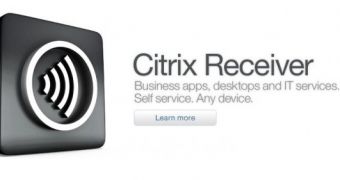The debate between Chromebook lovers and Windows-based PC enthusiasts seems to have been going on since the dawn of time.
Most Windows fan boys claim Chromebooks are basically useless because they don’t bring forth the necessary apps that allow users to get productive, plus you need an Internet connection to be able to actually do something with them (however, Google has improved the offline mode a lot).
Anyway, Google is trying to somehow leverage these limitations, so it has recently announced the Citrix Receiver for Chrome OS.
Citrix’s job will be to port Windows programs to Chromebooks (well, sort of) in an effort to appease Windows lovers and bring more users onboard.
“Although HTML5-based solutions, such as Citrix Receiver for HTML5, will work on Chrome OS and offer browser-based access to virtual apps and desktops without any download or installation of client software, the receiver for Chrome provides direct integration to functionality specific to Chromebooks.”
Basically, the Citrix Receiver for Chrome is a native app for Chromebooks which grants full access to the system’s resources covering printing, audio and video.
The effort is directed towards the enterprise sector which heavily relies on advanced security levels. So the Citrix app will assign a unique Receiver ID to each device that brings forth monitoring, seamless Clipboard integration across remote / local applications plus end user experience monitoring with HDX Insight and direct SSL connections.
Naturally, users won’t be able to access Windows apps natively, but in their virtualized form, which is a viable solution especially for the BYOD crowd who needs to access specialized solutions from time to time.
Sure, businesses still heavily relying on Windows software won’t be impressed by the Google/Citrix bundle, but there are scenarios when the virtualization scheme works, like the one we mentioned above.
Google and Citrix have plans to bring Chromebooks bundled with the software to 20 global enterprises in the upcoming months.
Since Chromebooks have managed to conquer the educational market, it seems like a logical step for Google to move its attention towards the business market, where more and more enterprise customers seem to be willing to take up these inexpensive little machines.
It’s interesting to note that as the partnership between Google and Citrix develops with the Receiver for Chrome, Microsoft has started the assault of the super affordable Windows with Bing laptops which have been especially designed to be “Chromebook killers.”

 14 DAY TRIAL //
14 DAY TRIAL //